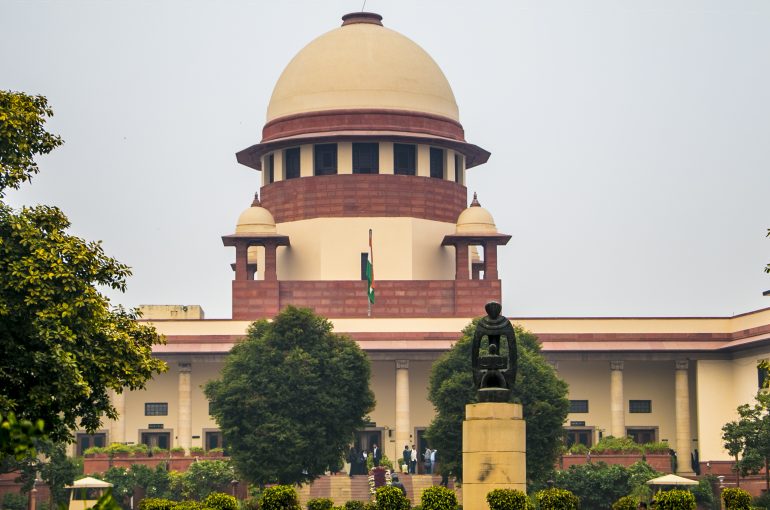SUPREME COURT REAFFIRMS: FIR MANDATORY FOR COGNIZABLE OFFENCES, EVEN AGAINST CBI OFFICERS

Supreme Court’s recent Judgment in Vinod Kumar Pandey & Anr. vs. Seesh Ram Saini & Ors. (S.L.P. (C) No. 7900 of 2019 and Connected matters), emphasizes the accountability within investigative agencies and the mandatory nature of FIR registration for cognizable offences. Delivered by Justice Pankaj Mithal and Justice Prasanna B. Varale, this Judgment underscores that even officers of premier investigative institutions like the Central Bureau of Investigation are not immune from criminal investigation when prima facie evidence of misconduct emerges. The case, spanning nearly two decades from the alleged incidents in 2000, highlights the complex interplay between institutional protection and individual accountability.
Factual Background
The case originated from serious allegations against two CBI officers: Vinod Kumar Pandey, then Inspector, and Neeraj Kumar, then Joint Director. The controversy began in 2000 with alleged irregularities in the seizure of documents and subsequent abuse of official authority. Two separate complainants, Sheesh Ram Saini and Vijay Aggarwal, approached the Delhi High Court through Writ Petitions filed in 2001, seeking registration of First Information Reports against these officers.
The allegations were multifaceted and serious in nature. Against Pandey and Kumar, Saini alleged violations relating to document forgery and criminal conspiracy. The core allegation centered on improper seizure of documents, without preparing contemporaneous seizure memos, which were allegedly created only the following day. Vijay Aggarwal’s complaint focused on harassment and coercion by Pandey, who allegedly summoned him, in direct violation of a bail order dated November 27, 2000. The complaint detailed abuse, intimidation, threats, and use of vulgar language aimed at coercing Aggarwal to withdraw his brother’s complaint against Neeraj Kumar.
The Delhi High Court’s Single Judge allowed both petitions on June 26, 2006. The Court directed Delhi Police to register cases and conduct investigations through the Special Cell, specifically excluding consideration of the CBI inquiry report during investigation. Orders were challenged through Letters Patent Appeals, which were dismissed as non-maintainable on March 13, 2019. This led to four appeals before the Supreme Court.
Brief Contentions of Parties
- Senior Counsel Ranjit Kumar, representing the CBI officers, contended that the complaints failed to establish cognizable offences warranting FIR registration. He argued that proper procedural requirements established by Supreme Court precedents were not followed before approaching the High Court. Significantly, he challenged the High Court’s finding, arguing it left nothing for investigating officers to determine except filing chargesheets. He emphasized that the CBI’s preliminary inquiry concluded no cognizable offence existed, making the High Court’s contrary finding inappropriate.
- Additional Solicitor General S.V. Raju initially sought CBI’s impleadment, arguing the organization should defend its inquiry report and officers. On merits, he supported the Appellants’ position, contending that complaints disclosed no cognizable offences and were barred by Section 197 Cr.P.C., since officers acted within official duties. He also argued the complaints violated Section 140 of the Delhi Police Act, 1978, and were time-barred.
Court’s Decision
The Supreme Court upheld the High Court’s directions while making important modifications. On the preliminary issue of delay, the Court condoned the 12-year delay, finding no wilful default since Appellants had bona fide pursued their legal remedies through Letters Patent Appeals.
Regarding CBI’s impleadment application, the Court declined, noting that CBI was already a party in original proceedings and had not challenged the High Court orders. The Court emphasized that individual officers, not the institution, were aggrieved parties responsible for their own defence.
On merits, the Court relied heavily on recent precedents, particularly Pradeep Nirankarnath Sharma vs. State of Gujarat (2025) 4 SCC 818, which established that allegations of official position abuse and corrupt practices constitute cognizable offences requiring investigation without preliminary inquiry. The Court emphasized that preliminary inquiries before FIR registration are not ordinarily contemplated in law and cannot override constitutional courts’ power to assess prima facie cognizable offences.
The Court distinguished this case from situations where alternative remedies exist, citing Ramesh Kumari vs. State (NCT of Delhi) (2006) 2 SCC 677 and Anurag Bhatnagar vs. State (NCT of Delhi) (SLP (Crl.) No.18084 of 2024), which established that alternative remedy grounds cannot substitute for FIR registration when complaints disclose cognizable offences.
Significantly, the Court modified the High Court’s directions in two key aspects: first, investigation would be conducted by Delhi Police generally rather than specifically by the Special Cell; second, the preliminary inquiry report could be considered during investigation but not as conclusive evidence.
The Court provided important safeguards for the officers, directing their cooperation with investigation while prohibiting arrest unless custodial interrogation becomes necessary, conditional on their regular appearance before investigating officers.
Conclusion
This Judgment represents the affirmation of the principle that no individual, regardless of institutional affiliation or seniority, stands above legal accountability. The Supreme Court’s observation that “justice must not only be done, but must also be seen to be done” and that “sometimes those who investigate must also be investigated” reflects a mature understanding of institutional accountability in democratic governance. The Judgment strikes a careful balance between ensuring thorough investigation of serious allegations while protecting officers from harassment through appropriate safeguards. By emphasizing the mandatory nature of FIR registration for prima facie cognizable offences, the Court reinforced fundamental criminal law principles while acknowledging the special considerations applicable to public servants.
YASH HARI DIXIT
Legal Associate
The Indian Lawyer & Allied Services
Please log onto our YouTube channel, The Indian Lawyer Legal Tips, to learn about various aspects of the law. Our latest Videos, titled “Legal Aspects of Exports in India | Export Laws Explained | Advocate Sushila Ram Varma” can be viewed at the Link below:





































Leave a Reply